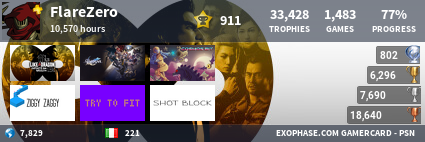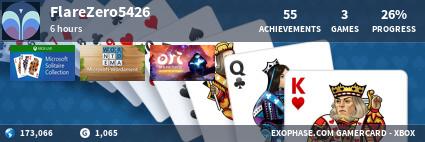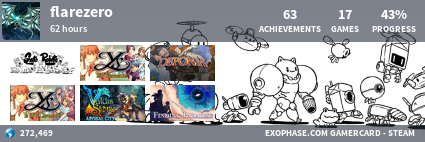Moving onto Project G.G.—this is something that’s being billed as the final entry in Kamiya-san’s trilogy of hero games. Can you talk about how these titles are connected?
Kamiya: “Well as you can tell from the games themselves,
Viewtiful Joe is in its own world,
The Wonderful 101 is in its own world—those are not connected in any way. What actually brings the three together as a trilogy is the essence of ‘hero.’ You can think of
Viewtiful Joe as the transformation solo hero,
The Wonderful 101 as the group hero, and now
Project G.G. will be the giant hero. So if you’re going to connect them in any way, it’s not via each game’s lore, it’s about the essence of them being hero games.”
Can you explain why this is the climax or final entry? Will you never make another hero game after this?
Kamiya: “I wanted to bring these games together as a trilogy, and this will be the third entry. Like I said before, there are mainly three categories of heroes, so this is kind of bringing that trilogy of hero types to a close. So that will be one thing. After this trilogy is finished, maybe in the future I will create a new trilogy. It’s not that I’m finished with heroes, but for this particular set it just makes sense for this to be the final one.”
How far back did you decide upon making this trilogy?
Kamiya: “I’m not really sure myself. It came to me during the development of
The Wonderful 101.
Viewtiful Joe was a hero game,
The Wonderful 101 was a hero game, so I kind of thought, ‘well, there’s also the giant hero.’ Then it started to form in my mind, ‘well, maybe one day.’ But it’s not that I had this plan from the beginning to do three, it kind of came as it went.”
How long has Project G.G. been in the works?
Kamiya: “It was about a year ago that the idea started coming together, but there’s actually an interesting backstory to it. As we were preparing to move into self-publishing, we had a competition within Platinum Games where anyone could write up a design for the game, especially for a lot of the younger staff, and then the higher members of the company would get together and check them out. I wasn’t involved in that process at all, but they basically narrowed it down to three. So there was a top three, but I had
Project G.G. in my mind, so I went to Inaba-san with the idea and he told me to write up a design. In the end, that was the most interesting option for Platinum Games and the one we moved forward with. That was about a year ago, and now we’re at the point where it’s finally starting to manifest itself.”
What’s the game’s genre?
Kamiya: “That’s not something I can say too much about. But what I can say is that while
Viewtiful Joe is a pure action game, this will not be a pure action game.”
What do you plan to do differently in Project G.G. that you maybe couldn’t do in Viewtiful Joe or The Wonderful 101?
Kamiya: “For me, it’s a totally new project. I was very happy with how
Viewtiful Joe and
The Wonderful 101 turned out, and each of those games are their own existence. This time around, I’m not thinking anything like, ‘Oh I wish I could’ve done this, or I wish I could’ve done that.’ It’s a totally new game with a totally new design, and that’s how we’re moving forward. Basically, I can’t give too many details at this point.”
(
Editor’s Note: While Gematsu did not ask about
Project G.G.‘s intended platforms, this is a good area to note that
IGN did, and that Inaba said, “Basically we’d like to hit PS4, Xbox One, Switch, and Steam, and then of course PS5 and Series X are coming soon. We don’t know exactly when this will come out, but we’d like to release it on whatever are the main platforms at that time.”)
For Project G.G., you guys are setting up a new studio in Tokyo. In Inaba-san’s message on the studio website, you mention wanting to expand into “console live ops” game development. Can you talk a bit about that?
Inaba: “I can’t say too much about it unfortunately. But up until now, it’s been, pay this amount of money for a game, then you’re finished. We do have plans to move into more service-themed games, but I can’t provide any detailed specifics at this point. All I can say is that there are plans to move in that direction.”
Would you describe such service games as the focus of Platinum Games Tokyo?
Inaba: “That’s not the sole purpose of the office, but it is one of the things we want to do. And there are a lot things we want to do in addition to that. We get a lot offers and things to that nature, and we unfortunately have to turn a lot of them down. So in establishing a Tokyo office, it will allow us to pursue a lot of those things we would otherwise have to refuse. It’s generally about expanding in that direction.”
Kamiya: “Also, Tokyo is the largest city in Japan, and there are a lot of people with various different skills and talents in Tokyo, so we want to utilize that talent. So getting more varied personnel with different skills is another reason for setting up this office.”
Would you say that because you guys are moving towards self-publishing that you’re moving away from working with other companies?
Kamiya: “That’s not the intention at all. We’ve established a lot of fantastic partnerships, so we want to continue doing that, while also expanding and working and self-publishing our own IP.”
Before we go, can you do that thing where you tell me development on Bayonetta 3 is going well and there’s nothing to worry about?
Inaba: “(Laughs.) There’s nothing to worry about at all. There’s nothing to worry about. Things are going very well. Really, there’s nothing to worry about.”
(Laughs.) Thank you for your time, Inaba-san and Kamiya-san.

Fossero già un po' più avanti tipo Scalebound alla presentazione (con Spencer che diceva di averci già giocato e che era bellissimo) vacillavo un po', ma qui l'incastro sembra perfetto. Bayo 3 in freezer per superare W101, XenoDef e l'estate, e lui senza crunch ad iniziare a tirarsi avanti col prossimo gioco.



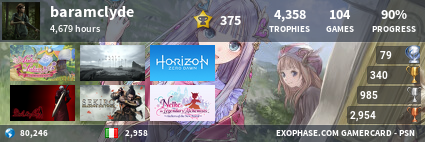
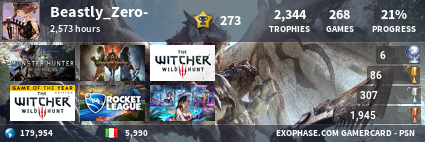

 , e ho adorato Astral Chain e Ninja Gaiden (ok mi piace anche Devil May Cry),
, e ho adorato Astral Chain e Ninja Gaiden (ok mi piace anche Devil May Cry),




